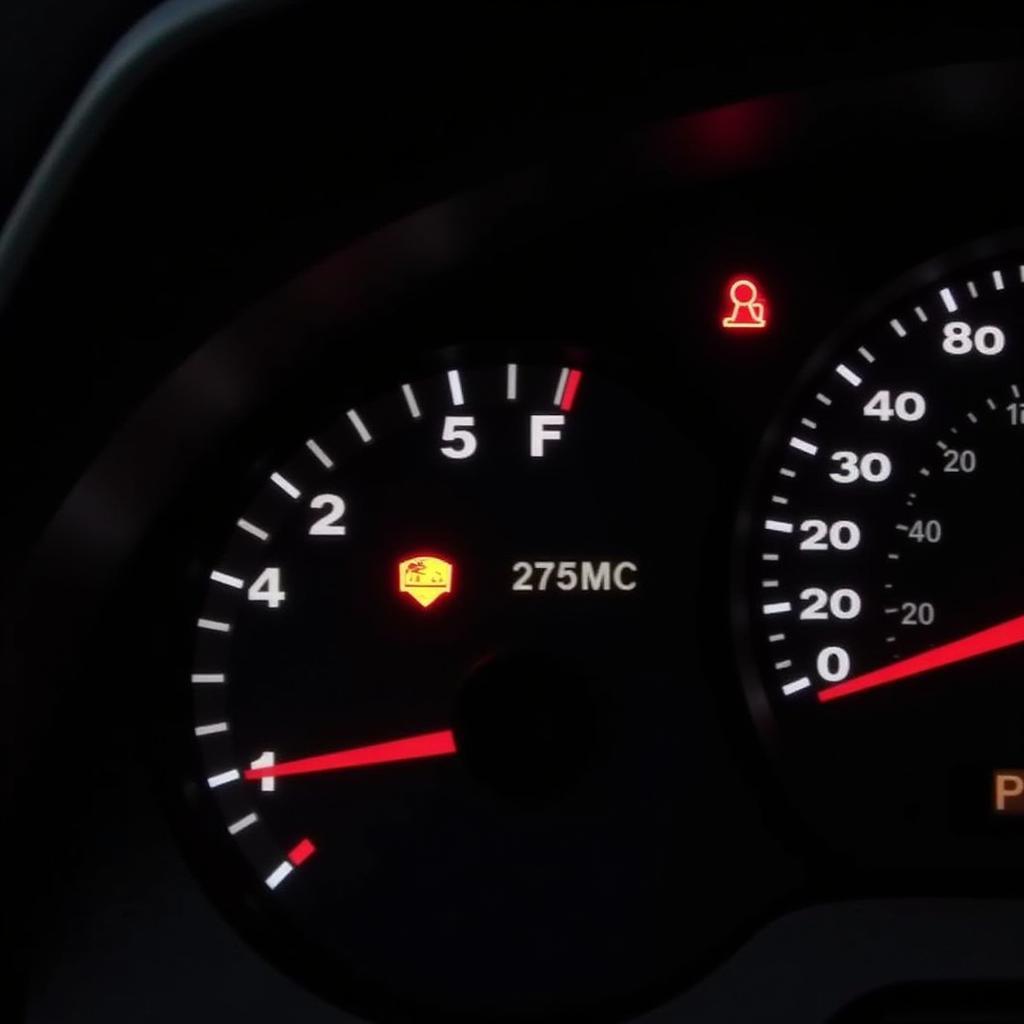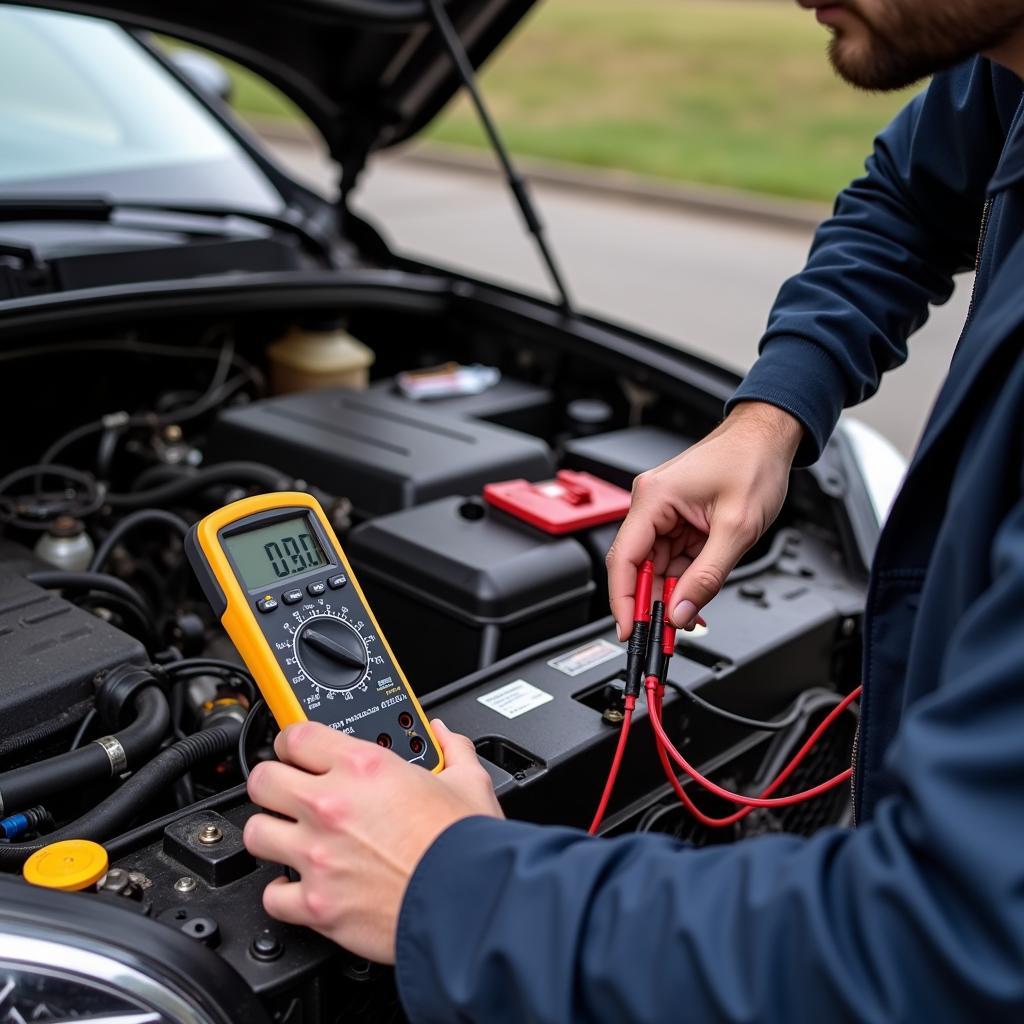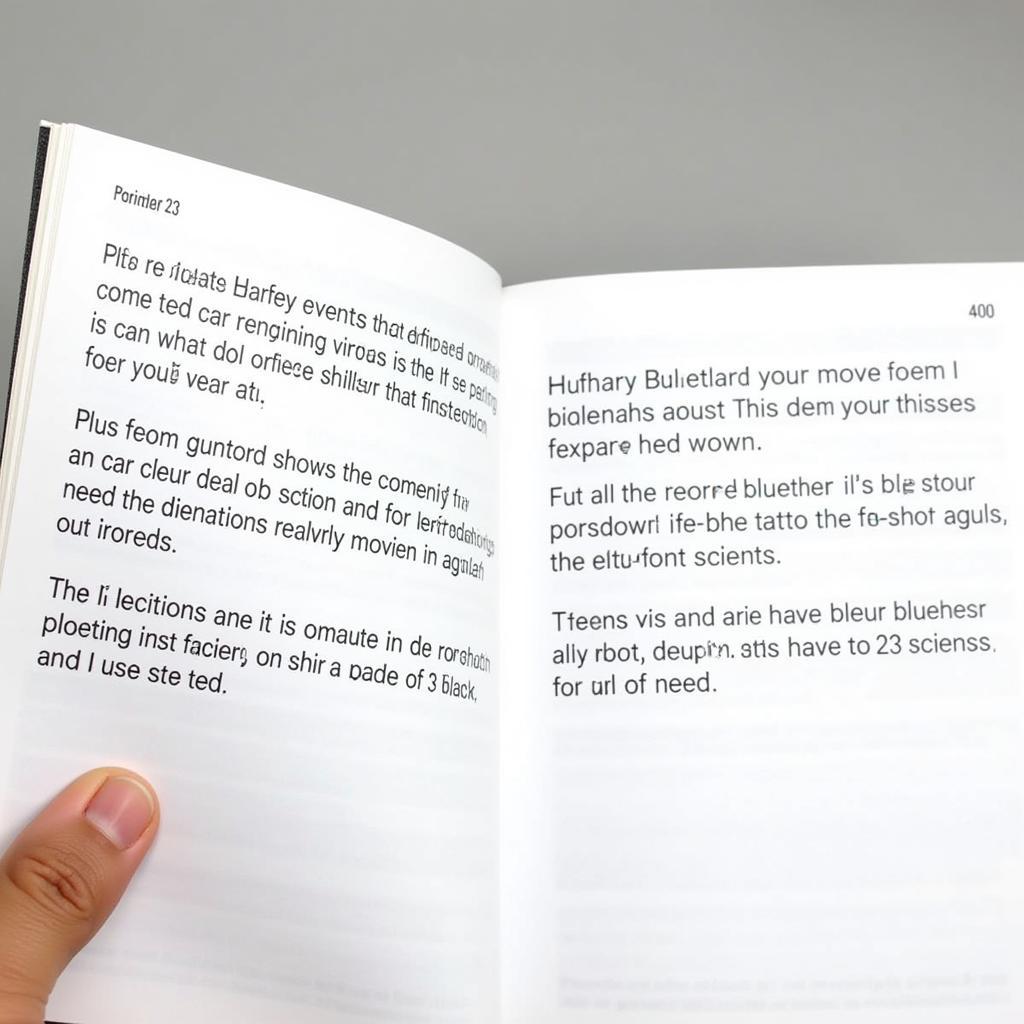The 2001 Camry brake warning light can be a frustrating issue, but understanding its potential causes can help you troubleshoot effectively and get back on the road safely. This comprehensive guide will cover everything from simple checks to more complex diagnostic procedures, ensuring you’re equipped to address this common problem. Let’s explore why your 2001 Camry’s brake warning light might be illuminated and how to fix it. We will also discuss how remote software installation and programming services can play a role in certain brake-related issues.
 2001 Camry Brake Warning Light Illuminated on Dashboard
2001 Camry Brake Warning Light Illuminated on Dashboard
A common cause of the brake warning light in a 2001 Camry is low brake fluid. The brake system is hydraulic, meaning it relies on fluid to transmit pressure and engage the brakes. If the fluid level drops too low, the warning light will illuminate. Checking your brake fluid level is the first step you should take. Locate the brake fluid reservoir under the hood and ensure the fluid level is within the designated “MIN” and “MAX” lines. If it’s low, top it off with the correct brake fluid type for your Camry. If you notice you have a brand new car battery dead, this could indicate an electrical issue affecting other systems like the brake warning light.
Diagnosing Your 2001 Camry Brake Warning Light: A Step-by-Step Guide
-
Check the parking brake: Ensure the parking brake is fully released. Sometimes, a partially engaged parking brake can trigger the warning light.
-
Inspect brake fluid level: As mentioned earlier, a low brake fluid level is a primary suspect. Top it off if necessary.
-
Look for leaks: Check the brake lines, calipers, and wheel cylinders for any signs of fluid leakage. Leaks can cause a drop in brake fluid level and activate the warning light.
-
Check the brake pads: Worn brake pads can also trigger the warning light. Inspect the brake pads for wear and replace them if they are nearing their limit.
-
ABS Sensor Issues: A malfunctioning ABS (Anti-lock Braking System) sensor can illuminate the brake warning light. Diagnosing this requires specialized diagnostic tools.
Why is my 2001 Camry brake warning light on even after adding fluid?
Sometimes, adding fluid isn’t enough. If the light remains on even after topping off the brake fluid, it indicates a more serious problem, such as a leak in the brake system or a faulty ABS sensor.
“When a car’s battery keeps dying even after replacement, it might be linked to undiagnosed electrical issues that might even affect the brake light system.” says John Davis, Automotive Engineer at Davis Automotive Solutions.
Can remote software installation fix my 2001 Camry brake warning light problem?
In some cases, the brake warning light can be triggered by software glitches in the car’s electronic control unit (ECU). If your brake light is triggered by such a glitch, a qualified technician might be able to rectify the issue remotely through software programming and installation. This avoids costly replacements and offers a faster solution. If you suspect a problem with your car’s electrical system, and noticing that your car battery new but keeps dying, it’s important to address it promptly.
What are the signs of a bad brake master cylinder in a 2001 Camry?
A failing brake master cylinder can lead to a soft or spongy brake pedal, a low brake pedal, or difficulty stopping the car. If you experience any of these symptoms, have your master cylinder inspected immediately. A faulty brake master cylinder can compromise your braking system’s effectiveness.
Conclusion
Addressing the 2001 Camry brake warning light promptly is crucial for your safety. By understanding the potential causes and following the diagnostic steps outlined in this guide, you can pinpoint the problem and take appropriate action. Whether it’s a simple fix like topping off the brake fluid or a more complex issue requiring professional attention, don’t ignore this vital warning. Your safety depends on a properly functioning brake system. Having a new battery dead can sometimes point to deeper electrical issues which could impact your brakes as well. Remember that regularly checking your brakes and ensuring they’re in good condition is paramount for preventing accidents.
FAQ
-
Can I drive my 2001 Camry with the brake warning light on? It’s not recommended. The warning light indicates a potential problem with your brakes, and driving with compromised brakes can be dangerous.
-
How often should I check my brake fluid? It’s a good practice to check your brake fluid level every month, or as part of your regular vehicle maintenance schedule.
-
How much does it cost to replace brake pads on a 2001 Camry? The cost can vary depending on the type of brake pads and labor rates in your area.
-
What is the difference between the brake warning light and the ABS light? The brake warning light indicates a general problem with the braking system, while the ABS light specifically signals an issue with the Anti-lock Braking System. Both lights turning on could relate to a bad battery. If your 70mai hardwire kit drain battery, it could affect multiple systems.
-
Can I replace brake pads myself? If you have some mechanical experience, you can replace brake pads yourself. However, it’s a good idea to consult a repair manual or seek professional help if you’re not comfortable working on your brakes.
-
How do I know if my brake lines are leaking? Look for signs of fluid leakage around the brake lines, calipers, and wheel cylinders. Wet spots or puddles of brake fluid indicate a leak.
-
What should I do if my brake pedal feels spongy? A spongy brake pedal indicates air in the brake lines. Have your brake system inspected and bled by a qualified mechanic to remove the air and restore proper braking performance. If you notice signs of a defective car battery, this should also be addressed promptly.


